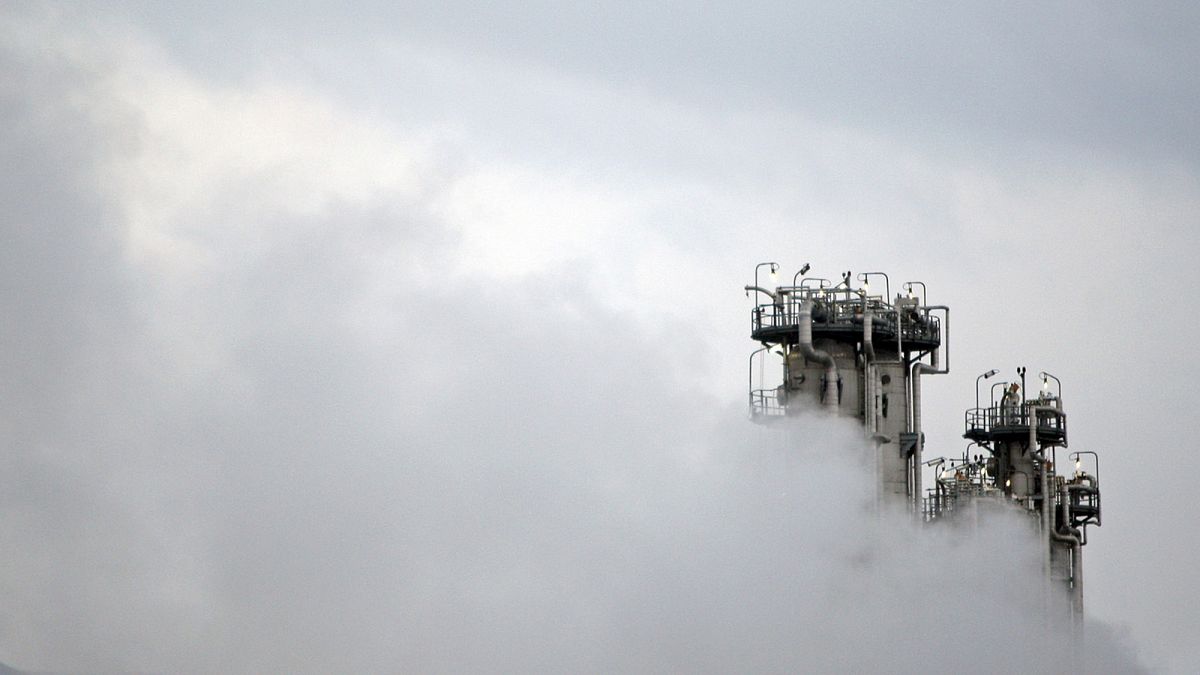Washington and Tehran said they would take part in indirect talks in Vienna next week, nearly three years after President Trump pulled the US out of the 2015 nuclear deal.
France urged Iran on Saturday to be "constructive'' and avoid further nuclear escalation as talks with Washington and Tehran are due to resume after years of stalemate.
The US and Iran said Friday that they would begin indirect negotiations on Tuesday in Vienna with European, Russian and Chinese intermediaries in a bid to salvage an accord limiting Iran’s nuclear program.
The move comes nearly three years after President Donald Trump pulled the US out of the deal, known as the Joint Comprehensive Plan of Action (JCPOA).
It marks one of the first signs of progress in efforts to return both nations to terms of the 2015 accord, which bound Iran to restrictions in return for relief from international sanctions.
French Foreign Minister Jean-Yves Le Drian spoke Saturday with Iranian Foreign Minister Jawad Zarif to prepare for the talks.
"I encouraged Iran to be constructive,'' Le Drian said in a statement.
"I called on Iran to abstain from any further violation of its current commitments in the nuclear domain that could threaten the movement toward resumed discussions."
'First step'
President Joe Biden came into office saying that resuscitating the accord and getting Iran’s nuclear program back under international restrictions was a priority.
But Iran and the US have disagreed over Tehran's demands that sanctions be lifted first, and that deadlock has threatened to become a setback for the new US administration.
"This is a first step," Biden's Iran envoy Rob Malley tweeted. He said diplomats were now "on the right path".
EU-brokered talks
Agreement on the resumption of talks came after the European Union helped broker a virtual meeting of officials from Britain, China, France, Germany, Russia, and Iran, all of which have remained in the accord.
US State Department spokesperson Ned Price called the resumption of negotiations "a healthy step forward". But Price added, "These remain early days, and we don’t anticipate an immediate breakthrough as there will be difficult discussions ahead".
Price said next week's talks will be structured around working groups that the EU was forming with the remaining participants in the accord, including Iran.
"The primary issues that will be discussed are the nuclear steps that Iran would need to take in order to return to compliance with the terms of the JCPOA, and the sanctions relief steps that the United States would need to take in order to return to compliance as well," Price said.
The United States, like Iran, said it did not anticipate direct talks between the two nations now. Price said the US remains open to the idea, however.
In a tweet, Iranian Foreign Minister Javad Zarif said the aim of the Vienna session would be to "rapidly finalize sanction-lifting & nuclear measures for choreographed removal of all sanctions, followed by Iran ceasing remedial measures".
Blame game
Trump pulled the US out of the accord in 2018, accusing Iran of continuously cheating. He opted for what he called a maximum-pressure campaign of stepped-up US sanctions and blacklisted top government officials.
Iran responded by intensifying its enrichment of uranium and building centrifuges in violation of the deal while insisting that its nuclear development was for civilian and not military purposes.
Iran has said that before it resumes compliance with the deal, the US needs to return to its own obligations by dropping the sanctions.
Israel, Saudi Arabia, and other US allies are on alert against the possibility of their main rival, Iran, attaining nuclear capabilities, keeping tensions up in a region where the US military is present and has often intervened.
